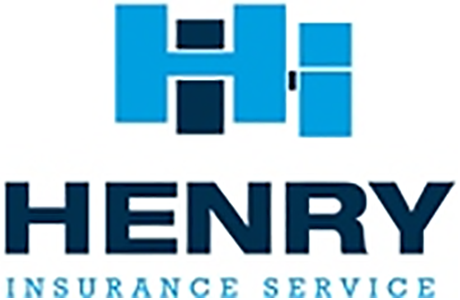If you’ve listened to the Governor’s recent messaging, you might be under the impression that Louisiana just pulled off the tort reform miracle of the decade. You may have received a letter that heralds the session as “the largest package of bills to stop frivolous lawsuits in Louisiana’s history.” So, your insurance rates should start dropping tomorrow, right?
We wish that were true.
Yes, Louisiana achieved some legislative wins this session that are absolutely worth celebrating and will boost the health of our business community and consumers. But others, like House Bill 148, are more than setbacks – they actually threaten to make the insurance climate much worse and negate most of the progress.
Ultimately, calling the summer session “historic progress” is really overstating the mark. The truth is that the results are a mixed bag: some genuine progress, several missed opportunities, and one particularly dangerous piece of legislation that could undercut the entire reform effort. Let’s unpack what passed and how it may impact you.
The Political Narrative vs. The Reality
The Governor has leaned heavily on the message that his administration “fixed” insurance in Louisiana. Certainly, we can all get behind reforms to rein in lawsuit abuse. But the impact of what passed is not so simplistic.
Rates aren’t going to fall overnight.
In fact, even in a best-case scenario, meaningful market shifts typically take two to three years. That’s because insurance is driven by actuarial data and long-term confidence in market stability, not press conferences, political sensationalism, or misleading photo ops.
When insurance carriers see deceptive, strong-armed maneuvering, like what happened with HB 148, their confidence in the health of Louisiana’s market plummets, as emphatically asserted in a letter written to the Governor from the National Association of Mutual Insurance Companies.
So, let’s break it down together: the good, the bad, and the ugly.
The Good
HB 431 (Chenevert): 51% Comparative Fault Rule – Passed
This law introduces a 51% liability bar in civil lawsuits. Before this bill, Louisiana allowed plaintiffs who were as much as 99% at fault to recover damages. This plainly defied logic and fairness.
Now, plaintiffs must be less than 50% at fault to recover any damages in a lawsuit. This is a long-overdue correction that aligns our system in Louisiana with national norms. It directly impacts claims costs and could make Louisiana a more predictable place to write policies, which is a positive for everyone.
HB 434 (DeWitt): Strengthening “No Pay, No Play” – Passed
This bill strengthens the deterrent for driving without insurance, thereby rewarding responsible drivers.
Previously, Louisiana’s “No Pay, No Play” law barred uninsured drivers from recovering the first $15,000 in damages. The new threshold raises the bar from $15k to $100k, which uninsured drivers cannot recover.
Why does this matter? Because trial attorneys could easily inflate minor claims to exceed the old limits. The new higher threshold makes it far harder to abuse and reduces the incentive for trial lawyers to inflate small claims into lawsuits.
It also further discourages people from driving without insurance – if you don’t carry insurance, you can’t fully benefit from the system.
HB 450 (Melerine): Repealing the Housley Presumption – Passed
The Housley Presumption gave plaintiffs an automatic assumption that any post-accident condition was caused by the accident without needing to prove a link. So, if you got into an accident and then experienced lower back pain, it was automatically assumed that the accident caused your lower back pain. No medical proof is required from the injured party. However, this also meant even pre-existing conditions or degenerative health issues were presumed to be caused by an accident.
Repealing this presumption is another great step in the right direction. Now, each party must prove causation, just like in every other state. It’s a win for fairness.
SB 231 (Reese): Partial Medical Transparency – Passed
This bill is a good start, but just a start. It limits recoverable medical costs in lawsuits to the amount actually paid, not just billed. On its face, this sounds like another victory for fairness and common sense.
However, there’s a bit of a catch. It only applies to bills that have been fully paid at the time of the trial, which is a rare occurrence. Most medical bills in litigation are still in process.
Yes, it’s progress. But, while it’s a step in the right direction to curb ‘phantom billing,’ it only addresses a tiny slice of real claims. Not the vast majority.
The Bad
HB 34 (Glorioso): Failed Medical Transparency Bill – Failed
This bill would’ve provided broader transparency into billed vs. paid medical charges, giving juries more accurate numbers to work with in injury cases. It was a better, more complete fix than SB 231, but it failed to pass. That’s a missed opportunity to curb inflated claims.
HB 427 (Bamburg): Reversionary Trusts for Future Medical – Failed
This bill proposed reversionary trusts for future medical damage awards. Why does this matter? Because right now, when a plaintiff is awarded future medical costs, there’s no guarantee that the money will actually go toward healthcare.
Reversionary trusts would require that funds be used for their stated purpose – not boats or vacations. Without this, we know that some of these awards don’t go toward care at all. This was another common-sense solution that would have gone a long way toward ensuring more integrity in the system and drastically reducing abuse. But it failed.
HB 432 (Chenevert): Third-Party Litigation Financing Transparency – Failed
This bill would’ve mandated disclosure of third-party litigation financiers. What’s happening now is that lawsuits are being treated as investment vehicles, sometimes even funded by foreign entities to take advantage of IP in discovery.
This creates an incentive to drive up verdicts and introduces major transparency and national security risks. The fact that this bill failed is deeply concerning.
HB 435 (Egan): General Damages Cap – Failed
This bill proposed a $5 million cap on non-economic damages like emotional distress. That’s five times higher than caps in states like Mississippi, which has a $1 million cap.
This isn’t about punishing victims. It’s about discouraging nuclear verdicts that drive insurers out and make Louisiana hostile. When insurers get spooked, they leave the state, which decreases competition and drives up prices.
This bill would’ve been a major stabilizing factor. It didn’t pass.
HB 440 (Henry): Mitigation of Medical Costs – Failed
This bill tried to close a loophole where plaintiffs bypass their health insurance in favor of inflated private billing arranged by their attorneys.
For example, A plaintiff gets in an accident. Then, instead of letting their insurance company handle it, their lawyer works out a side deal with the medical provider. The inflated charges are presented in court, even though the real cost could’ve been much lower. This bill would’ve required the use of available insurance. Another avenue for reducing phantom billing failed.
The Ugly
HB 148 (Wiley): The Frankenstein Bill – Passed
This was originally supposed to be a simple bill to improve transparency on insurance renewals. And, with its amendments, it took on the life of a monster.
Here’s what HB 148 does:
- Expands the nominal power of the Insurance Commissioner to deny rate filings deemed “excessive” without requiring actuarial justification.
- Forces insurers to publicly expose proprietary pricing data, putting competitive secrets at risk.
- Creates a political scapegoat, so that when rates don’t fall immediately, blame the Insurance Commissioner, not the Governor.
Let’s be clear: this bill terrified the insurance market. If even one of the large national carriers exits Louisiana, we do not have the capacity to absorb that volume. Rates will rise. Options will shrink. Consumers will suffer.
This bill was crafted to give the illusion of reform while laying the groundwork to shift blame to the Insurance Commissioner when rates don’t fall. This political theater and regulatory overreach will yield potentially catastrophic consequences for our state.
Stay Vigilant: Looking Ahead to Next Steps
Reforming insurance in Louisiana is a marathon, not a sprint. But if we stick with it, we can build a healthy, competitive market that serves consumers, businesses, and insurers alike.
We can’t afford to keep playing politics with one of the core pillars of a functioning economy. Yes, Louisiana has made some progress this summer, but we’ve also taken serious steps backward.
We are not done. There is more work ahead.
We must:
- Continue advocating for real, balanced tort reform
- Push for more transparency, accountability, and economic logic
- Demand legislation that promotes long-term market health, not short-term headlines
Reform has begun, but it’s far from complete. Rates won’t drop immediately. They’ll only fall once insurers believe Louisiana is a fair and stable place to do business.
That means pushing for real reform and continuing to show up, speak up, and demand a marketplace that works for consumers and the business community.
We may be in a marathon, but we’re running it together. Let’s keep going.

